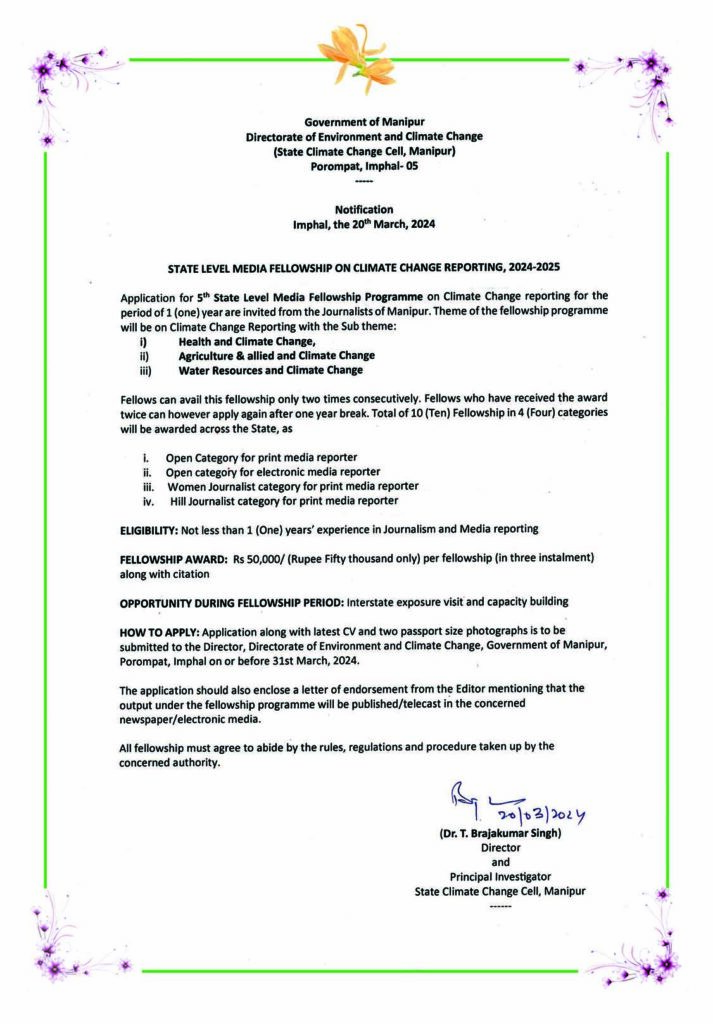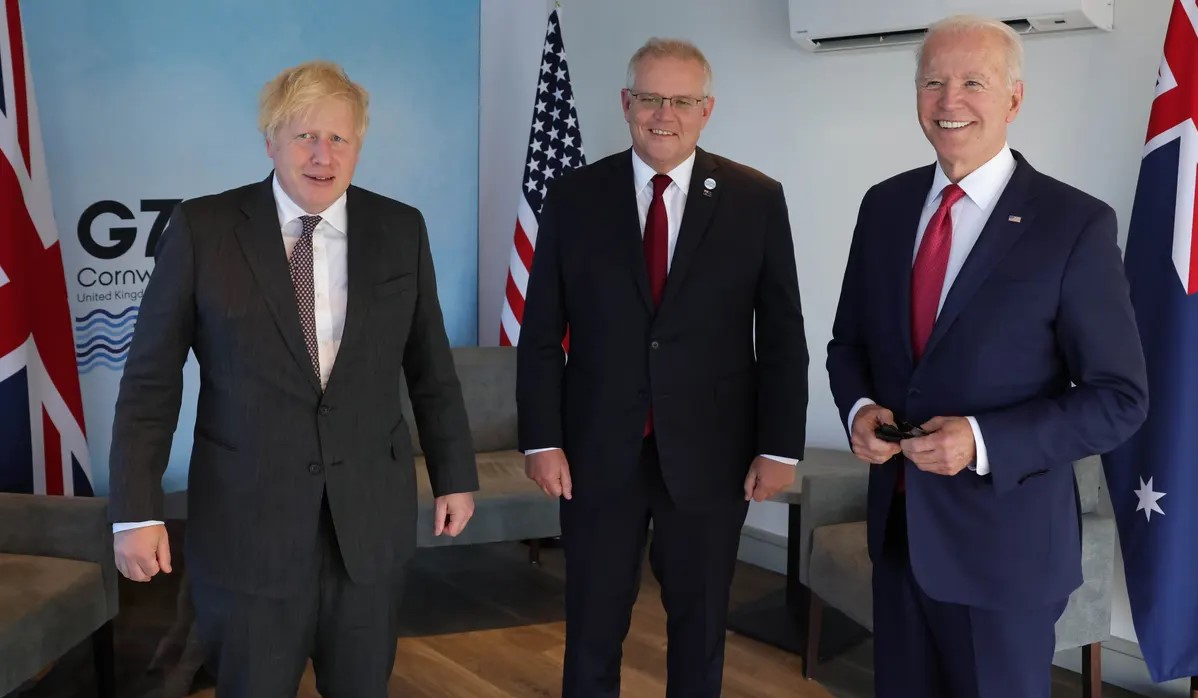Since the formation of Australia, the United Kingdom, and the United States trilateral security alliance (AUKUS). The excitement around referring to the Quadrilateral Security Dialogue (QUAD), which includes Australia, India, Japan, and the US, as ‘Asian NATO’ or the ultimate deterrence to China in the Indo-Pacific region, has now quieted down. Despite QUAD’s revival, the AUKUS alliance appears to have surpassed its allure. Furthermore, the region’s security architecture has been reconfigured into a more intense military and security competition.
The security alliance was announced two days before the QUAD summit in the US. Then, India’s former Foreign Secretary Harsh Vardhan Shringla backed out of the alliance, stating that the QUAD and AUKUS are two distinct groupings with separate natures. However, a closer examination of the formation of the AUKUS alliance while excluding India, despite the revival of QUAD in the Indo-Pacific region, reveals that it is tied to India’s domestic adversaries and divergent foreign policy practises that the US finds unnerving. Therefore, India must work to rebuild its deteriorating democratic values and develop clear strategic policies for a free and open Indo-Pacific region.
The US has supported India’s rise as a democratic and peace-loving country that can offset China’s assertiveness in the Indo-Pacific region since its economy was liberalised. From the signing of the US-India Civil Nuclear Agreement in 2008 through multiple dialogue mechanisms, the most recent of which was the 2+2 ministerial dialogue between India and US secretaries of state and defence, which has aided in deepening their engagements on various challenges.
However, the National Democratic Alliance-II (NDA) led by the Bhartiya Janata Party (BJP) has come to power. India’s democratic principles and secular ethos, which are enshrined in the country’s constitution, are currently under attack. India is also experiencing an increase in communal violence, with attacks on religious minorities becoming more frequent. The most recent is the assault against the Mughal legacy. This has aroused concerns in the US Congress, questioning the two countries’ peaceful and strategic relations.
On 23 September 2021, US Vice President Kamala Harris made a statement in which she reminded India of its eroding democratic ideals and institutions at home and emphasised the importance of rebuilding its values. The remarks were made at a time when religious polarisation in India was on the upswing, with frequent attacks on Christians and Dalits. Congresswoman Ilhan Omar questioned the Biden administration’s silence on India’s human rights and the country’s growing hate crimes against Muslims. Days later, at the fourth 2+2 ministerial dialogue in Washington, DC, US Secretary of State Antony Blinkin rebuked India’s rising human rights violations.
Since Trump departed from the White House, these remarks have been an uncommon source of criticism. In contrast to Trump’s administration, which is engaging India’s BJP-led government. The Biden administration has generally limited its interaction and partnership with India due to the country’s deteriorating democratic values. The present Ukraine crisis has prompted the administration to slightly tilt its focus away from China and the Indo-Pacific region toward Europe’s security, which are significant worries for India. As the US reaffirmed its commitment to safeguarding democracy and human rights concerns around the world, the Biden administration has come to a crossroads when it comes to building ties with India.
India’s divergent foreign policy practices are another aspect that the US deems suspect. Ongoing Russia’s invasion of Ukraine, for example, has been a major diplomatic challenge for India. When India abstained from a United Nations Security Council vote, the US drive for a robust collective response to Russia’s invasion of Ukraine was derailed. India’s neutral attitude, on the other hand, was welcomed by Russia. Except for India, all QUAD members have condemned Russia’s offensive operations in Ukraine, raising concerns about QUAD’s shared visions in the Indo-Pacific region.
However, India faces unique challenges, including its substantial reliance on Russia for defence equipment and its need to fight China on its Himalayan borders. As a result, it has left India out of the option to stand against Russia, which has held firm during its difficult times. The Ukraine crisis has shown that the Russia problem is a stumbling block in sustaining India-US relations. With little sign of Russia ceasing its offensive measures in Ukraine and India maintaining its neutral stance on the crises, India-US relations are expected to get more strained in the coming years.
India’s stance in the Asia-Pacific in countering China has been further clarified by the AUKUS. India wants to counter, but it does not want to be the one to contain China. This is due to India’s complex situation in the region, the most serious of which was the 2017 Doklam Standoff between India and China which had severe consequences for both sides. India is concerned that China may increase its naval presence in the Indian Ocean Region (IOR) in response to AUKUS assertiveness in the Indo-Pacific region.
Many Indian observers see the AUKUS as a deterrence to China, allowing India to maintain strategic autonomy in the Indo-Pacific region. Some believe it has opened up new opportunities for India to work with France on future submarine programmes and with the UK in the region. India, on the other hand, should be wary of the new alliance because it missed the bus with AUKUS, which could offer India a plethora of chances beyond addressing the soft security concerns given by QUAD.
As the Indo-Pacific security architecture shifts toward more intense military and security competition, India’s military and security capabilities, as well as its naval presence in the region, must be prioritised. But, with its democratic values deteriorating, how long can India seek support and maintain relations with ‘freedom-loving’ and ‘like-minded’ countries in the region to counter China? The formation of AUKUS serves as a wake-up call for India to rebuild its democratic values. To achieve this, the opposition parties and the BJP’s regional opponents must ally and formulate India’s clear Indo-Pacific strategy for a free and open Indo-Pacific region.

The writer is a Research Scholar at the Department of Political Science, Manipur University. He writes in his blog Global Affairs on international politics.









